Winter 2017
Published: 08/05/2016
Letter from the Chair
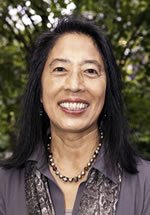 |
| Sheri Mizumori |
Here we are, starting not just another academic year, but we are at the beginning of our 100th academic year! Yes, that’s right, our Psychology Department was established 100 years ago in January of 1917! What a great time to celebrate our long and strong history of pioneering and impactful discoveries that have shaped our understanding of fundamental behaviors such as how we learn and remember, how we make sense of our external sensory world, how children develop social and emotional competence, how the brain enables us to make good decisions, how implicit biases shape our view of the world, and how psychological intervention can improve mental health around the world. Keep an eye out via our social media sites (e.g. facebook and twitter) and/or our website for ‘Did You Know?’ cool facts about the details of these discoveries. While it is fun to go look back in time, this centennial milestone is even more important time to look ahead with new visions for the future. Stay tuned for the unveiling of our broad and ambitious visions for a transformative future! Tackling some big societal problems is foremost on our minds. As a sneak preview you will be hearing about plans to improve mental health by growing resilience in children and adults, to promote social equality, and to launch new levels of impactful psychological intervention through brain science. Click here to learn about our ongoing work to reduce inequities in society.
As part of our 100th year celebration, we also recognize the pivotal role that our students have played in advancing both our teaching and research missions. While our faculty continue our historic tradition of teaching many of the most popular courses on campus to a wide range of majors in addition to psychology majors, undergraduate student involvement in research has made our research programs what they are today! These research and other capstone experiences have prepared our students to not only succeed but to become leaders in diverse careers. After receiving their PhDs, our graduate students continue to snap up the most competitive positions, be they in academia, research, or industry. While many of you have let us know the wonderful things you have done since graduating, we’d love to hear from more of you! Let me know what you are up to by sending me a quick email (mizumori@uw.edu).
I want to express my humble and sincere appreciation to those who have supported the department for many years, for without your support we would not be in the great position that we are today! I invite ongoing and new supporters to partner with us as we move forward generating new leaders who are equipped to tackle the challenges of the next century.
Have the most wonderful holiday, and I wish you and your family the best of health and happiness in the new year!
Sincerely
Sheri Mizumori, Chair
Featured Articles
Tackling Implicit Bias in Society
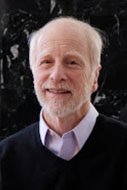 |
| Tony Greenwald |
In recent times, we have heard public figures including US presidential candidates, the FBI director, and heads of major technology corporations discuss the role of “implicit bias” in a wide range of social disparities. UW Psychology’s own Tony Greenwald (Professor in the Department since 1986) is the world’s leading scientist behind implicit bias and he invented the Implicit Association Test, a widely used tool to study these hidden implicit biases, in his Guthrie Hall laboratory in 1994.
Now that implicit bias has leaped from the scientific journals to the world at large, how does Greenwald think policy makers should approach implicit bias? Greenwald believes that making changes in society will involve more than teaching people about their implicit biases (this might even backfire as it could cause people to feel ‘accused’), and will instead require encouraging institutions to use decision-making processes that block the operations of implicit biases. For example, in his book “Blindspot” with Mahzarin Banaji, Greenwald notes how symphony orchestras became more gender balanced after auditions were changed so that the gender of the player was not evident to those evaluating their work.
Noting that changes required to avoid bias in most organizations are generally quite substantial, Greenwald observes that “in most organizations, these changes are unlikely until the person at the top of the organization takes it as a personal goal to bring about equal opportunity and equal treatment”. Learn more about implicit bias and the Implicit Association Test here. The UW Psychology Department is at the forefront of producing scientific insights that can address social disparities. To support scholarship on these topics, please consider donating to the UW Psychology Department, or our targeted Diversity Fund. You can learn more about diversity in our department here.
Understanding Child Mental Health in New Delhi’s Slums
Prerna Martin is a 2nd year Child Clinical student working with Shannon Dorsey. The Psychology Department asked Prerna to share her experiences conducting a research study in India this summer, while being supported by the Graduate School's Top Scholar recruitment award. Shannon Dorsey’s lab focuses on disseminating and implementing evidence-based practices for children and adolescents domestically and globally in low- and middle-income countries.
 |
| A typical Delhi slum and one of the study sites |
Growing up in India, I worked in urban slum communities from a young age. This involvement was through Asha, a non-profit organization founded by my mother that serves over half a million slum residents in New Delhi. Asha has a bottom-up multi-faceted approach to urban development, where trained community workers living in slums help design and lead programs in healthcare, education, empowerment, environmental improvement and financial inclusion. Over the last 30 years, Asha slums have undergone remarkable transformation in these areas – residents have access to healthcare services, morbidity and mortality from preventable diseases is low, most children go to school, living conditions have improved and community members are empowered to fight for their rights. Mental health, however, has been missing from this picture.
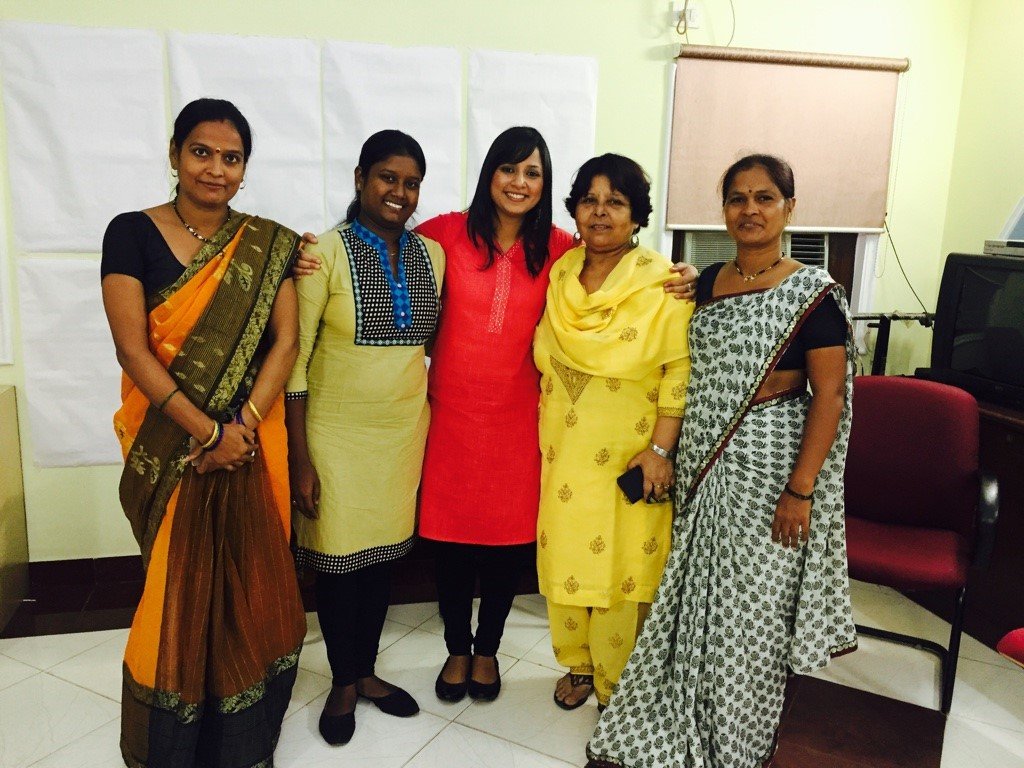 |
| Supervisors & project coordinators oversaw study activities at each site. Prerna in center. |
This summer, I had an opportunity to lead a research study that would inform the development of mental health services for children and adolescents in Delhi’s slums. Many chronic stressors from living in an urban slum such as overcrowding, residential insecurity, lack of clean water and sanitation, violence, abuse, discrimination, child labor and extreme poverty, place slum children at a high risk for developing mental disorders. Yet, no mental health services have been adapted to fit the needs of this population, and slum children remain one of the most under-represented groups in the global mental health agenda.
For this project, I used the Design, Implementation, Monitoring and Evaluation (DIME) method developed by Dr. Paul Bolton at John’s Hopkins University (JHU) to conduct a rapid needs assessment using qualitative interviews and focus groups. We wanted to understand how psychosocial problems of slum children are described and prioritized in this cultural context. At Asha, I trained 16 staff members in qualitative methods, who then interviewed over 120 children and adults living in two Delhi slums. The DIME method involves gathering lists and descriptions of problems identified by general community members, and then investigating potential mental health problems by interviewing key community informants. In order to capture local conceptualizations of mental illness, we conducted all the interviews and analyses in the local language, Hindi.
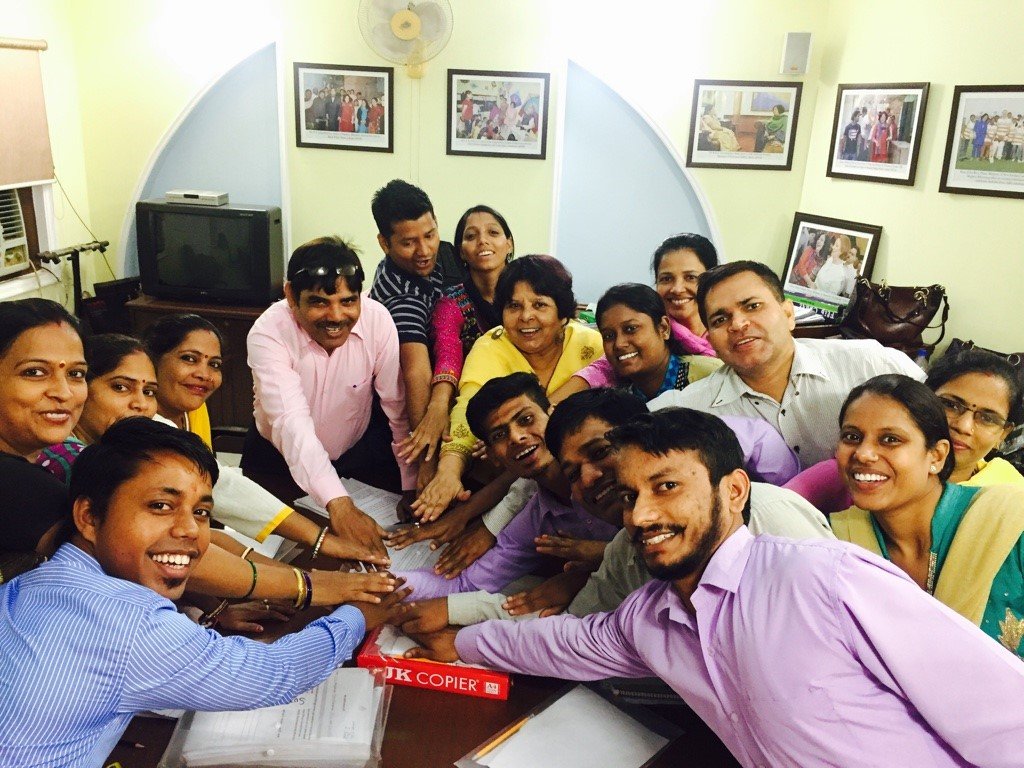 |
| Our team huddle every morning before starting study activities! |
For me, this experience was both inspiring and challenging. We learned so much about what mental health problems “look like” in urban slum children. While some of the underlying symptoms of internalizing and externalizing problems were similar to those we see in Western cultures, their descriptions and perceived causes differed. One of the biggest challenges was setting aside our preconceived notions of what mental illness should look like, and letting our understanding be truly informed by local perspectives. I was fortunate to work with a phenomenal team that was hard working, dedicated and really eager to learn new research skills. We started each day with a short affirmation exercise to verbally affirm each other’s strengths and unique qualities, which did wonders for team building and morale. It was exciting to see the interviewers grow and improve in their skills over the three weeks of the study. We encountered challenges at almost every step – from coordinating recruitment to translating study materials, making decisions during analyses to interviewer burnout. Through all of it, I was grateful to have so much support from Asha and my mentor and colleagues at UW and JHU. I left with a deeper appreciation of the unique challenges in global mental health research, and was also inspired by the potential for change.
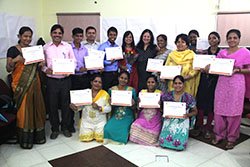 |
| Interviewers and supervisors receiving certificates in qualitative research at the end of the study. |
Looking forward, I am so excited about what we can offer kids and families living in Delhi slums. We are partnering with JHU and the Public Health Foundation of India to use this study’s data to inform measurement development and service delivery. Ultimately, my vision is to develop a culturally acceptable community-based mental health program that can be adapted for children living in slums worldwide. Thank you so much to the Dorsey Lab and UW Psychology Department for your support and encouragement towards pursuing the work that I love and extending our impact beyond Seattle – all the way to India!
Supplemental reading:
- Learn about the Dorsey Lab at UW.
- Learn about the NGO Asha in New Delhi.
- Learn about the DIME method.
Endowed Student Scholarships and Fellowships at the UW Psychology Department
As 2016 comes to an end, we are including a new section to our newsletter: Endowed Scholarships and Fellowships. This section highlights the motivations behind the creation of our different funds as well as the groups of students they benefit. It is also an opportunity to share with donors, alumni, and friends what and who their gifts will support in the Department of Psychology.
If you have questions about donating or setting up your own fund, please contact Sarah Burdell.
Earl Hunt Graduate Fellowship Fund
Earl Busby (Buz) Hunt (January 8, 1933 – April 12, 2016)
Prof. Earl “Buz” Hunt was a member of our faculty for 50 years. Hired in 1966, Buz was a renown cognitive psychologist who made significant advances in our understanding of human and artificial intelligence. He was also very active in department and university administration including serving as Chair of the Department. Buz retired in 2001 but remained active within the Department as Professor Emeritus. The Earl Hunt Graduate Fellowship Fund supports graduate students in the Department of Psychology whose original, independent research extends beyond the domain of their faculty advisors. Buz and his wife Mary Lou created this fellowship in 2010. Since that time, the Earl Hunt Graduate Fellowship Fund has supported 14 students. The Department thanks the Hunt Family for their continued support of our students with this Fellowship Fund in Buz’s name. Read more about the students supported through this fellowship.
Click here to make a contribution to the Hunt fund.
Ned Wagner Memorial Endowment
This endowment was established in the early 1980s following the death of Nathaniel N. "Ned" Wagner, our Director of Clinical Training. It was funded initially with seed money from a departmental honorarium provided by the Western Psychological Association for hosting their 1979 convention in Seattle (Ned was the Convention Manager), and from a special bank account that Ned established and funded by contributing his own speakering fees for the support of graduate students. Since his death, the Department has used the Ned Wagner fund to support graduate student travel to conferences where they are presenting their work, and it has funded hundreds of trips over the years. Currently, we are supporting five students each year. All gifts to this endowment will go toward increasing the ability to support our students.
Click here to make a contribution to the Wagner Fund.
Aric Chandler Memorial Fund for Undergraduate Student Support
Aric Joseph Chandler (May 27, 1994 - August 04, 2016)
On August 4, 2016, Aric Chandler passed away unexpectedly in his sleep from a fatal complication of epilepsy called Sudden Unexpected Death in Epilepsy or SUDEP. He was registered to attend the University of Washington after receiving his Associate Degree at Bellevue College. Aric had planned to earn a degree from the Psychology Department that would enable him to pursue his dream of helping others. To honor his memory, Aric’s family and friends have set up the Aric Chandler Memorial Fund for Undergraduate Student Support. The endowment will benefit undergraduate transfer students in to the UW Department of Psychology from a Washington State two- or four-year colleges. Each year, the UW Department of Psychology welcomes approximately 140 transfer students from around the state. We thank Aric’s family and friends for their thoughtful gift. The UW Psychology Department looks forward to celebrating Aric’s legacy and helping others to fulfill their dreams in his honor. You can join Aric’s family and friends to complete Aric's life's work by clicking the link below.
Click here to make a contribution to the Aric Chandler Memorial Fund.
Ruth H. Hagenstein Endowed Scholarship
Ruth H. Hagenstein’s family set up an endowment to benefit undergraduate students in the College of Arts and Sciences pursuing degrees in psychology and/or sociology. Ruth H. Hagenstein (Johnson) and William D. Hagenstein were both graduates of the University of Washington in 1938. Ruth's studies were in the School of Social Science with interests in the fields of psychology, sociology, and social work. She was a lifelong advocate and supporter for the needs of children. We thank the Hagenstein’s for their support of our undergraduates.
Click here to make a contribution to the Hagenstein Fund.
UW Psychology support funds
Click here to make a contribution to the Friends of Psychology Fund.
Save the Dates! Upcoming Psychology Events
Allen L Edwards Psychology Lectures Series: March 29, April 5, and April 12, 2017
Kane Hall, Room 225
Doors open at 7:00 p.m.
Lectures begin at 7:30 p.m.
Online registration opens in March 2017. Watch for your email invitation to register!
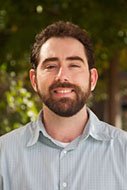 |
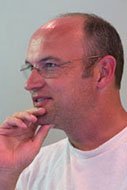 |
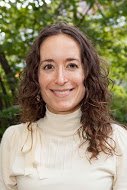 |
| David Gire | Geoffrey Boynton | Katie Mclaughlin |
Improving Society through Brain Science
Wednesday, March 29, 2017:
David Gire, Ph.D., Assistant Professor, University of Washington
Zach Mainen, Ph.D., Director, Champalimaud Centre for the Unknown, Portugal
Wednesday, April 5, 2017:
Geoffrey Boynton, Ph.D., Professor, University of Washington
Wednesday, April 12, 2017:
Katie McLaughlin, Ph.D., Associate Professor of Psychology, University of Washington
Charles Nelson, Ph.D., Professor of Pediatrics, Boston Children's Hospital, Director of Research, Developmental Medicine Center, Harvard University
Upcoming Winter Colloquium
No registration required. A small reception will follow.
Wednesday, January 11, 2017
Physics/Astronomy A114 3:30 – 4:30 pm
Edwards Lecturer:
James Elder, Ph.D.
Centre for Vision Research, York University
UW Psychology Faculty Host:
Ione Fine, Ph.D.
Navigating the Next Steps: Graduate School Exploration Class
"The class gave me a lot of confidence going forward and best of all, it gave me deadlines to get things done."
- Logan Kaplan, BS in Psychology - 2016
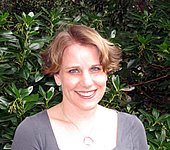 |
| Vicky Hansen |
The class in question is PSYCH 298, Graduate School Exploration for Psychology Majors, taught by Psychology Academic Advisor Vicky Hansen. What began in 2005 as a multi-session workshop for psychology majors planning to apply to graduate programs has evolved into a two credit class that is offered each fall quarter. The class focusses on the main components of the graduate school application process: understanding the Graduate Record Exam (GRE), obtaining strong letters of recommendation, crafting CVs, writing compelling personal statements, and preparing for interviews. Many psychology majors aspire to some type of post-graduate education and a number of these students are intimidated by the task of finding an appropriate program and negotiating the application process. "The desired outcome of the class," explains Vicky Hansen, "is that everyone feels more knowledgeable about the process of selecting a program and applying to it, and they feel comforted by the fact that they are not alone on this journey."
Each fall quarter, Vicky welcomes 40-45 registered seniors as well as several recent graduates to embark on this journey together. Logan Kaplan was one of these students during the fall of 2015. Now a graduate student in School Psychology at Eastern Washington University, Logan appreciated the ready access to advice as well as the class structure that helped to keep him on track. "Without this class," recalls Logan, "I would have waited until the last minute to obtain letters of recommendation and prepare my CV and personal statement and the process would have been a lot more stressful." Vicky especially enjoys the opportunity to mentor students through the application process, as well as the ability to work with a large group of students all at once. "I am able to work with 45 or 50 students at the same time for 20 hours over the course of the quarter," says Vicky, "and the group aspect of the class is almost as valuable for students as the information we cover."
Student feedback about the class has been very positive and the opportunity to work both with a group teaching/advising model and to provide each student with individual attention has been especially satisfying from Vicky's perspective. In particular, guiding students through the process of writing a strong and engaging statement of purpose is simultaneously rewarding and challenging. Vicky notes that many students find it difficult to write about themselves and her aim to help them overcome this hurdle and to find their unique voice. In that specific task, as well as in the process as a whole, the aim is to mentor students step by step as they navigate what can be a bumpy path. "I think that students are surprised by how many things they need to do to get ready to apply," observes Vicky, "and while it can feel overwhelming, when you put it together piece by piece, it can be accomplished."